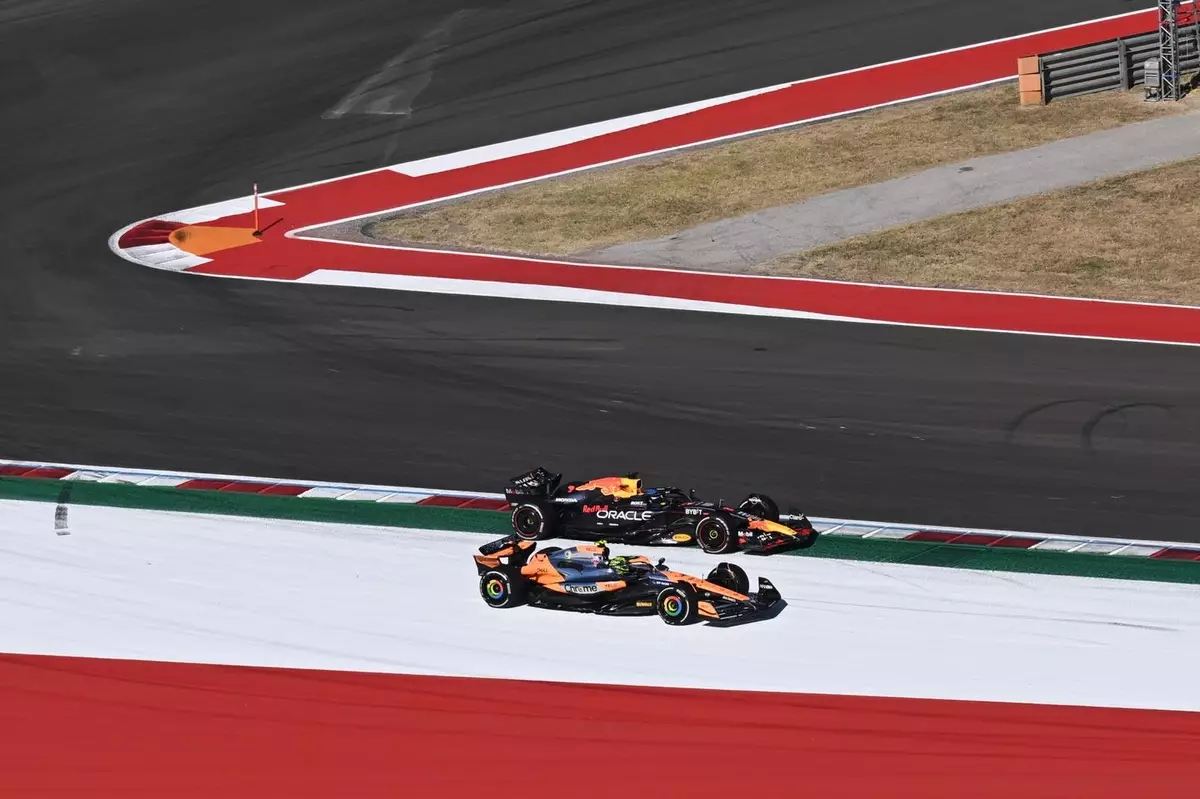The exhilarating world of Formula 1 has always been fraught with controversies, penalties, and disputes that ignite passions among teams, drivers, and fans alike. A recent incident involving McLaren and one of its star drivers, Lando Norris, has sparked another furious debate about race conduct, rules enforcement, and the interplay of evidence in stewarding decisions. As McLaren seeks to instigate a right of review regarding Norris’s five-second penalty at the United States Grand Prix, the implications of this request reach far beyond the immediate future of the team and the driver.
During the United States Grand Prix, Norris found himself engaged in a fierce contest with Red Bull’s Max Verstappen. The race reached a climax when the two drivers battled late into the event, a moment that seemed to encapsulate the intense rivalry and high stakes of contemporary Formula 1. To the dismay of many McLaren supporters, a key overtaking maneuver by Norris off the track was brought to the attention of the stewards, resulting in the aforementioned penalty. This decision arguably reshaped the race’s outcome, elevating an already contentious situation into the realm of protest and appeal.
The penalty sparked expressions of discontent not only from fans but from the McLaren team as well. It raises critical questions about the consistency of race regulations and the application of penalties in such high-pressure scenarios. In this case, the McLaren team did not merely accept the ruling; they initiated a process that would promote their view of fairness in the racing environment.
The right of review process is rooted in the FIA’s International Sporting Code, designed to provide a structured method for addressing compelling new evidence in cases like Norris’s. Article 14.1.1 allows involved parties, such as teams and the FIA, to request a re-examination of decisions if substantial new elements emerge. McLaren’s decision to pursue this right reflects not only their commitment to justice but also the competitive spirit that defines Formula 1.
For the upcoming hearing, set to take place in Mexico City, McLaren will need to demonstrate that evidence has surfaced that is both significant and relevant to their case. This could be a daunting task, as the burden will rest on their ability to persuade the stewards that they should retreat from their previous decision. The innate challenge lies in the subjective interpretation of what constitutes “new” and “significant” evidence. Given the intricacies of race visuals and the personal interpretations of on-the-ground officials, the outcome could significantly impact the resultant race standings and overall championship dynamics.
It’s worth noting the historical context of appeals in Formula 1. An illustrative example occurred when Mercedes attempted to make a similar case against Verstappen in the 2021 Brazilian Grand Prix. They argued that a unique perspective of Verstappen’s driving behavior, only visible through telemetry, constituted new and significant evidence not available to the stewards initially. Ultimately, this request was denied, as the stewards deemed that while the evidence was new, it did not warrant a reevaluation of the initial decision.
This precedent highlights the challenges McLaren may face in convincing officials to reconsider Norris’s situation. While McLaren may allege that new evidence exists, they will need to craft a compelling argument that alters the perception of how the original ruling was reached.
If the right of review in the Norris case leads to a successful overturn of the penalty, it could reshape not only the standings in the immediate race scenario but also influence the dynamic between competitors moving forward. Changing the order of the top finishers would have ramifications for championship points and could illuminate long-standing tensions surrounding racing conduct and the bounds of aggressive driving maneuvers.
Alternatively, should the stewards uphold the penalty, it will reaffirm their authority and the acceptance of the rules as they currently stand—a recognition that despite the quest for fairness, adherence to established regulations must take precedence. This balance of judgment is crucial for the integrity of Formula 1, as it navigates the fine line between competitive spirit and regulatory boundaries.
McLaren’s right of review request exemplifies the unyielding nature of competitive racing, where the quest for fairness and transparency evolves amid ever-complex circumstances. As fans await the outcome of the hearing, the broader implications on the current season and the sport’s governing philosophy continue to linger in the air, underscoring the intricate dance between competition and regulation that defines Formula 1.

